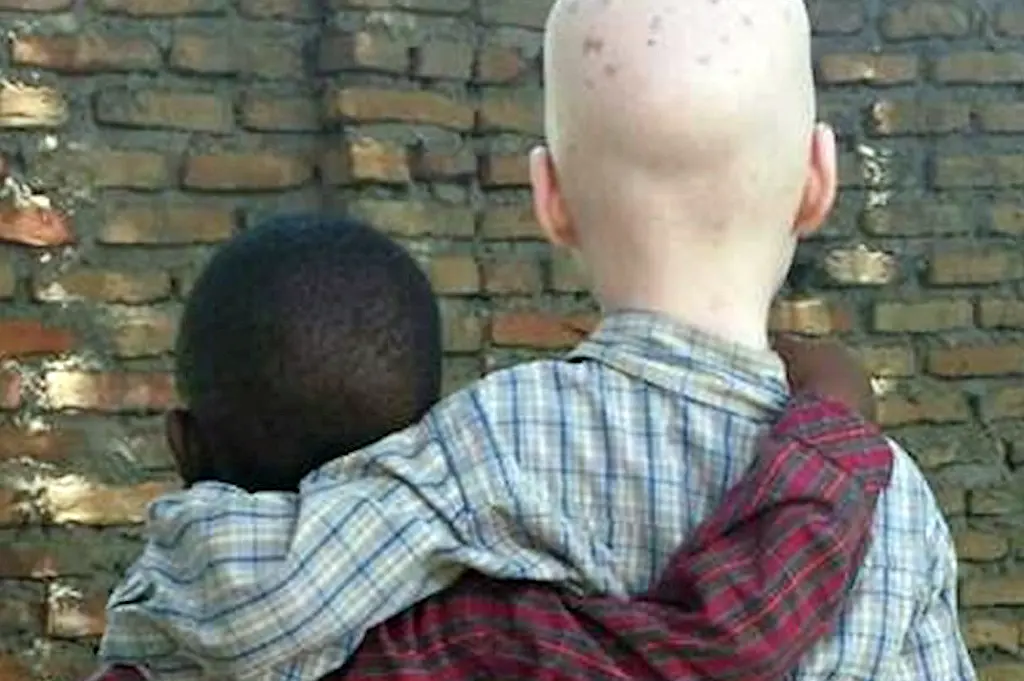
On 13 June, every year the world commemorates the International Albinism Awareness Day. This year the International Albinism Awareness day is commemorated under the theme ‘shining our light to the world’, providing an opportunity to reflect on progress and challenges facing persons with albinism.
In 2018 many positive steps were taken regionally to advance the rights of persons with albinism. For example, a number of countries have taken steps to improve data on the lived realities of persons with albinism. Sierra Leone is conducting research to identify major challenges faced by persons with albinism. Cameroon has documented standards of living for persons with albinism who reside in the country’s capital, Yaoundé. Moreover, a survey on the socio-economic and demographic status of persons with albinism seeking to understand the living conditions of persons with albinism was launched in Nigeria. In addition, public education has been undertaken to demystify albinism regionally. The United Nations Expert on Albinism opened a platform for persons with albinism to share their work and art through social media campaigns and exhibitions. In Tanzania, the Josphat Tornner Foundation launched a campaign to debunk harmful myths about persons with albinism though football matches.
These achievements shine a light on the creativity and dynamism of activists regionally working to end discrimination and violence against persons with albinism. Yet in many parts of the globe, and particularly in Africa, murder, violence and attacks and violations of the rights of persons with albinism persist. In May this year, a 5 year old girl with albinism was kidnapped and killed in Mali. The murder of Macdonald Masambuka who disappeared at Mbawa Trading Centre in Nakawa village, northern Malawi, put the country in the spotlight for attacks and killings against persons with albinism. A mother to three children with albinism from the Democratic Republic of Congo (DRC) was forced to flee to neighbouring Uganda fearing that her children could be targeted for beliefs that albino body parts bring luck and power. Relatively, recently, the body of a man with albinism was reportedly stolen from his grave two days after burial in South Africa.
With regional dynamics underlying persistent violations, it is encouraging that regional consensus in developing strategies to address these problems is growing. In May the Pan-African Parliament passed an historic resolution strongly condemning human rights violations against persons with albinism and endorsing the Regional Action Plan on Albinism in Africa (2017-2021). The Plan, also endorsed by the African Commission on Human and Peoples’ Rights in 2017, adopts a multi-sectoral approach involving key actors and highlights areas needing intervention to address abuses committed against persons with albinism. The Pan-African Parliament called on African Union Member States to take all measures necessary to adopt and implement the Regional Action Plan, in order to take steps to ensure the effective protection and promotion of the rights of persons with albinism and members of their families, including prosecution and punishment for cross-border crimes.
On this International Albinism Awareness Day, we celebrate the achievements of persons with albinism who are shining a light on the human rights barriers faced by persons with albinism and in uniting actors across the region behind a concrete strategy to achieve meaningful change. In accordance with the Regional Action Plan, we call on African States to urgently implement the Regional Action Plan on Albinism in Africa. States should coordinate regionally and work with persons with albinism and human rights activists nationally to prevent rights violations, protect persons with albinism from violence and rights violations, pursue accountability for attacks, violence and displacement of persons with albinism regionally, and to enact laws and measures to realise equality for persons with albinism.



